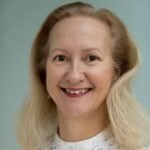Controversy Erupts in New Jersey Hospital Over Comments on Charlie Kirk’s Assassination
In a shocking incident that has ignited a firestorm of debate, a New Jersey surgeon allegedly expressed approval of the assassination of conservative commentator Charlie Kirk. The fallout from this incident has led to the suspension of a nurse who publicly condemned the surgeon’s remarks, raising questions about ethics in the medical profession and the intersection of politics and healthcare.
The Incident: A Disturbing Exchange
The controversy began at Englewood Health, where Dr. Matthew Jung, a bariatric surgeon, reportedly made inflammatory comments regarding Kirk’s assassination during a shift. According to nurse Lexi Kuenzle, who has worked at the hospital for nearly two years, the incident unfolded in front of several colleagues and a patient. When news of Kirk’s death broke, Kuenzle expressed her dismay, stating, “Oh, my God! That’s terrible! I love him!”
In response, Dr. Jung allegedly retorted, “I hate Charlie Kirk. He had it coming. He deserved it.” This exchange left Kuenzle in disbelief, prompting her to question how a medical professional could make such a statement about someone’s life. “It was mind-blowing to me,” she later recounted, expressing her anger and frustration over the surgeon’s comments.
Immediate Repercussions
Following the incident, Kuenzle reported the exchange to hospital management and subsequently took to social media to voice her concerns. Her actions, however, led to severe consequences. The day after her report, she was summoned to a meeting with hospital administrators and was suspended without pay pending an investigation. A union representative even suggested that she begin searching for another job, further compounding her distress.
Kuenzle’s lawsuit, filed in Bergen County Superior Court, claims wrongful termination and highlights the ethical dilemmas faced by medical professionals. She argues that Dr. Jung’s comments not only violate the Hippocratic Oath but also the American Medical Association’s Code of Medical Ethics, which emphasizes the importance of treating all patients with respect, regardless of their political beliefs.
The Broader Context: Ethics in Medicine
This incident raises significant questions about the role of personal beliefs in the medical field. The Hippocratic Oath, a foundational ethical guideline for physicians, emphasizes the importance of preserving life and treating patients with dignity. The American Medical Association’s Code of Medical Ethics further underscores the necessity for physicians to maintain professionalism, regardless of their personal opinions.
The implications of a healthcare provider expressing such views are profound. Critics argue that if a doctor allows personal biases to influence their treatment of patients, it could lead to a dangerous precedent where political beliefs overshadow medical judgment. This concern is particularly relevant in today’s polarized political climate, where discussions about healthcare often intersect with ideological divides.
Kuenzle’s Background and Support
Lexi Kuenzle, a 33-year-old nurse and self-identified conservative, has been vocal about her political beliefs on social media. Her Instagram account features images that reflect her support for conservative values, including photos of her holding an American flag and a cardboard cutout of former President Donald Trump. This background adds another layer to the controversy, as it raises questions about whether her political affiliations influenced the hospital’s response to her complaints.
Support for Kuenzle has emerged from various quarters, including GOP activist Scott Presler, who referred to her as one of “Charlie’s Angels” on social media. He questioned whether Dr. Jung could provide unbiased care to patients who hold differing political views, suggesting that his comments could indicate a troubling bias in his professional conduct.
Hospital’s Response and Future Implications
As of now, it remains unclear whether Dr. Jung has faced any disciplinary action for his remarks. The hospital has not publicly commented on the incident, leaving many to speculate about the internal dynamics at play. The lack of transparency raises concerns about how such incidents are handled within healthcare institutions and whether they adequately protect employees who speak out against unethical behavior.
Kuenzle is seeking unspecified damages in her lawsuit, which could have far-reaching implications for workplace policies in healthcare settings. If her claims are substantiated, it may prompt hospitals to reevaluate their protocols regarding employee conduct and the handling of complaints related to ethical violations.
Conclusion: A Call for Ethical Reflection
The incident at Englewood Health serves as a stark reminder of the ethical responsibilities that healthcare professionals bear. As the lines between personal beliefs and professional conduct continue to blur, it is crucial for medical institutions to foster an environment where ethical standards are upheld, and employees feel safe to voice their concerns without fear of retribution.
As this case unfolds, it will undoubtedly contribute to the ongoing dialogue about the role of politics in healthcare and the importance of maintaining professionalism in the face of personal beliefs. The outcome may not only affect the individuals involved but could also set a precedent for how similar situations are managed in the future, emphasizing the need for a commitment to ethical practice in medicine.










